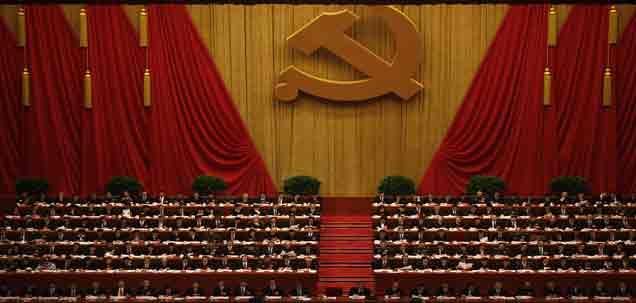 Chinese leadership is meeting in Beijing to install fifth generation of Leadership. More than 2,000 delegates are expected to meet for the Congress over a period of two weeks (8 November-14 November) to bring about once-in-a-decade leadership change.
Chinese leadership is meeting in Beijing to install fifth generation of Leadership. More than 2,000 delegates are expected to meet for the Congress over a period of two weeks (8 November-14 November) to bring about once-in-a-decade leadership change.
The Communist Party of China (CPC), also known as the Chinese Communist Party (CCP), is the founding and ruling political party of the People's Republic of China (PRC). Although nominally it exists alongside the United Front, a coalition of governing political parties, in practice, the CPC is the only party in the PRC, maintaining a unitary government and centralizing the state, military, and media.
Due to the Party's Leninist roots, it stands above the law. The current party leader is Hu Jintao, who holds the title of General Secretary of the Central Committee.
The party was founded in July 1921 in Shanghai. After a lengthy civil war, the CPC defeated its primary rival, the Kuomintang (KMT), and assumed full control of mainland China by 1949. The Kuomintang retreated to the island of Taiwan, where it still remains to this day.
The vast majority of military and civil officials are members of the Party. Since 1978, the Communist Party has attempted to institutionalize transitions of power and consolidate its internal structure.
The Communist Party meets every five year. This will be party's 18th meeting.
The CPC is the largest party in the world with over 82 million members. The members constitute 60% of the Chinese population. The delegates are voted in by the members in a lengthy voting procedure.
However, the power to choose resides with the party's personnel division, thereby, ensuring presence of prominent people in the party.
The current president of China was too a delegate of the party. He was a delegate from his home town, Jiangsu province. The delegates, numbering 2,268, are chosen to represent the country’s population as broadly as possible.
Chinese Congress meets once in five year for two weeks to select the Central Committee. The Central committee, consisting of 307 members, is largely made up of full-members and non-voting alternates drawn from the upper echelons of the party, government and military. The Congress also selects party’s internal watchdog agency. The Congress does offer scope for dissent, but within limits.
The Central Committee then meets to select the Politburo Standing Committee. From the politburo, the apex of the power is selected. The current standing committee has nine members, though it is expected to increase by nine times. Two members are considered shoo-ins: Xi and Vice Premier Li Keqiang, who is expected to be named premier. The Central Committee also appoints the party commission that oversees the military.
 В Атырау -10
В Атырау -10